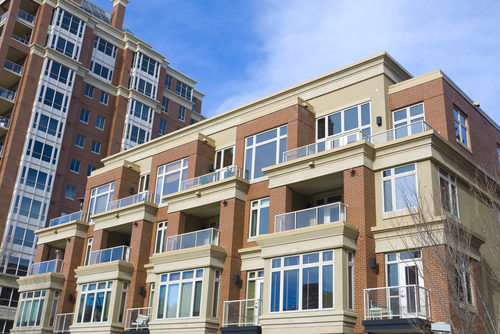Yes, foreigners are legally permitted to acquire property in Thailand, but they are only allowed to possess property with certain restrictions. We will provide all of the details on our blog.
Foreigners are prohibited from owning landed property outright. Landed property refers not only to the rock and plots of soil. It also includes landed villas, bungalows, houses, and townhouses. It's land with a building sitting atop it. Although, they're not allowed to directly buy land in Thailand nor can they own freehold land in their personal name. You can find a way around this.
Indeed, you can register and legally own the building structure even though the land is owned by someone else. The freehold land title registration at the land office of Thailand should show ownership in the name of a company or a Thai citizen.
Even though you might feel frustrated about Thailand property law ownership for non-citizens, they're actually there to protect the country's real estate market from the dangers of overdevelopment.
Avoid Overdevelopment: It keeps Thailand from ending up like the more overdeveloped places on earth, such as Hong Kong, San Francisco, and London. They have inflated property prices that price out the locals and only allow the rich elite to buy property there.
Retain Prices and Natural Beauty: It even allows Thailand to retain its natural beauty while at the same time keeping land and property prices within the reach of its citizens instead of bought up all over the place by non-Thai entities.
The government basically came up with this system to keep things fair and equitable for locals. It also doesn't mean foreigners can't buy property at all.

Now that the safeguards have been put into place so that locals don't get priced out of the market due to overseas investment and inflated property prices, what can you do as a foreign investor to get Thai property?
Dig a little deeper in order to find various options available to you to get your own Thai property. Don't forget the fact that there’s a high rate of home ownership in Thailand (80 percent) compared to America (64.5 percent) or the U.K. (63.5 percent).
You can own your own "Thai Land" in Thailand by availing of things such as freehold ownership or buying through a company, among other legal methods.
The most straightforward way for a foreign investor to own Thailand property? Get a freehold condominium. According to Thailand law, up to 49 percent of the unit area of any condo can be owned by non-citizens or foreigners.
As long as the given development maintains the requisite Thai-owned percentage of at least 51 percent or more, the condo can be legally or fully titled to the name of a foreigner. This means permanent ownership in perpetuity until the unit gets sold to someone else.

Buying a condo serves as one of the more clear-cut methods for a non-citizen to buy real estate property in the Land of Smiles.
This came about thanks to the 1979 Thai Condominium Act that allowed foreigners to own the freehold for up to nearly half the total unit space or 49 percent specifically. This fractional ownership allows foreigners to get 49 out of 100 condos of the same size.
This ownership allows you a title deed with your own personal name on it. As for the remaining 51 percent of the units, they're reserved for Thailand locals and citizens for purchase.
Buying a condominium typically entails having the title include a "fractional interest" in the building as well as its common areas. This translates to the owner owning tiny pieces of your swimming pool, car park, gardens, and reception area.
Fractional ownership also equals a share of the vote when making decisions, care of the owners association.
Upon transfer of property ownership, a letter of guarantee of a "foreign quota" and a certificate of being debt-free (no outstanding common fees for the given unit) should be presented to the Thailand Land Department.
The Thai real estate market offers various different Land Title Options. You might have heard of "J", "Chanod", or "Chanote" titles for Thai properties. It refers to the legal title deed to a freehold land.
Certificate of True Ownership: In other words, it's the certificate of true ownership for land in Thailand. It's also the only true ownership land title deed. It has your full name, details, and the GPS coordinates of your property.
Garuda Stamp: At the top of such a document, you should see a red rubber stamp on it known as "Garuda". If the mark has any other color than red, then it's not a Chanote title deed.
Advantages: Lands with Chanote titles get GPS plotted relative to the national survey grid and the most accurate of surveys. They're also marked by unique numbered market posts set onto its perimeter grounds.
Why GPS? GPS ensures a more accurate way of confirming your property location as well as its boundaries. This is as opposed to a deed that only describes your total square meters without outlining the specifics of your territory.
Speak to Your Lawyer: Before signing any agreement or paying a deposit for a Chanote title, a lease agreement, or registration of superficies over a property, you should always speak to a Thai property lawyer.

Another easy method of owning Thailand land is to lease a piece of land or an apartment. The leasehold serves as a prepaid rental agreement where you secure the land or property price ahead of time.
Foreigners can get a lease on real estate or land in their personal name for about 30 years with the Thailand Land Department, which then serves as a maximum single tenure.
You can also own the building and lease the land as a foreign investor. Get a property built on land you've leased from the freeholder and let it sit on it as your asset.
The freeholder could be a company like the developer or an individual who owns it. This serves as a viable loophole forbidding foreigners to outright own land in Thailand because the restrictions on land ownership don't cover building ownership.
The Thai economy is okay with foreign investors taking out 30-year leases on the plot of land (that can be renewed twice for a 90-year lease) in order to build a commercial property, a personal dream villa, and so forth.
The Civil and Commercial Code states that foreigners can renew the property lease for an additional 2 consecutive times after the initial 30-year period, thus allowing you to have a 90-year leasehold period.
With that said, if the heirs or landowner would refuse, then the leasehold renewal is not always enforceable by law even though the option for renewal remains on the table.
Have an agreement with the land owner in advance in writing for your own protection, particularly when dealing with issues like a further lease payment request.
There's an optional or alternative way to go about owning Thailand land by leasehold. You can put in a "declaration of intention" created in person during the lease registration or right after it. You can also sign a Usufruct as well.
Whichever the case, make sure you and your lawyer can make a carefully worded contract for the leasehold. It's also advisable to have regular legal consultation to guide you through the process as safely and securely as possible.
A foreign project owner can also set up control of the freehold land title for his project using an offshore company as a lease option. This is known as the "secure leasehold" structure option.
This method offers huge tax benefits for the purchasers and project owners and it has been done before in places like Hong Kong or the British Virgin Islands, so there's precedent in regards to its effectiveness.
Renewal of the 30-year tenure could be signed off in advance by the owner if the lessor and lessee would agree to such terms.
However, the issue with such advanced terms is that the forms might be subject to change in the future, which could lead to clashes between the parties in light of unforeseen events.
As far as the foreign investor is concerned, advanced terms ensure they or their heirs will renew the lease after 30 years or 60 years automatically.
More and more Thai luxury apartments have availed of the secured leasehold real estate sale contract. After all, such properties value minimizing risk since they're so premium priced.
As for companies availing of secured leasehold properties, there are some instances wherein the collective owners or shareholders of such real estate can control the renewal process themselves. This enhances the security of such a deal.
This is typically structured through a managed project situation where the developer or owners offer such a special service for you.
A foreigner could set up a Thai Company Ltd. This way, they can own property by purchasing the land as part of a company instead of as an individual. However, in order to do this right, the company should be a legitimate business instead of a front.
Generated Revenue: You can't use a company in name only or shell company in order to buy up Thailand lands under your company name. Your company should generate revenue and it should be a Thailand company specifically.
Thai Shareholders: You should have proper Thai shareholders for your Thai company that's buying up land in Thailand. This means you can't use nominee shareholders, since that's illegal in the country.
Control of the Company: These shareholders should be legitimate investors with a say in the running of the company rather than the company being built solely as your loophole in purchasing different lands in Thailand. A qualified lawyer can also ensure the Thai shares have restricted voting rights, or the shares can be ‘signed-over’ to the foreign buyer, to allow maximum control of the company.
About 49 Percent Shares: The foreigner who's part of the company should not own more than 49 percent of the shares of the company either. The Thai shareholders should have a majority stake, in other words these Thai shares can be a different ‘category’ or ‘class’ of shares, thus restricting their voting rights and any control over the company.
Succession Planning: You can purchase the land through an offshore company if you're doing some succession planning since companies don't die even as their owners die as long as they don't go bankrupt or fail.
Inheritance Made Easy: Offshore company land purchase for Thailand properties make planning for the inheritance painless and simple. The person controlling the company shares effectively owns the purchased condominium or villa.
Condominium Sales by Company: If you wish to sell the property you've bought by proxy, you only need to transfer the offshore shares to a new foreign owner. If it's a sale with another Thai national, you can sell it normally.
If you have Thai acquaintances, friends, or business partners, you can get the most trustworthy of them to make the purchase of a villa, hotel, condo, or resort under their name.
You can have an agreement with the Thai national that states they can own a 49 percent interest of the property in question but you won't have your name on the title deed. Legally, only your friend could have it.
Many foreigners go with this tactic in owning Thai property although it's inherently risky.
In such cases, the friend has the right to lease, sell, or dispose of the property without your consent in accordance with Thai law. This is where the trustworthiness of the person comes into play.
You should make absolutely sure he's trustworthy enough to pay for a property you want on your behalf without double-crossing you and doing what he wants with it afterwards.
They don't have anything in writing to stop the title-holder Thai friend from doing what he wants.
The BOI investment type of Thailand property ownership option is an uncommon one as far as residential purchases are concerned. However, it still exists for you to use as an alternative to all other ownership options.
Land Code Amendment Act: Thailand's Board of Investment (BOI) enables foreigners to buy and own freehold land for up to 1,600 square meters or 1 rai under the 1999 Land Code Amendment Act in Section 96.
Residential Purposes Only: You're also required to give out an investment worth at least 40 million baht. There's also the condition that the land should be used for residential purposes only or can be claimed of substantial benefits to Thailand.
Specific Assets for the Investment: Your BOI investment must be specified in government bonds or assets deemed beneficial to the economy of the country of Thailand.
Non-Transferable Investment: Another limitation of the BOI investment method of owning Thai real estate is that it's not transferable by inheritance. As such, it's limited to the lifetime of the owner.
You can purchase land for sale in Thailand if you have a Thai spouse and you're a foreigner husband or wife. Foreigners need only to be married to a Thai national to have a chance at owning Thai property and land.
You have to watch out for certain limitations for such an agreement though, particularly when it comes to ownership and spousal division of the property.
No Rights: The non-Thai spouse should waive their right to claim the property and state they have no rights to the land being purchased.
Named to the Spouse: The Thai spouse should have their name registered in the deed instead of the foreigner spouse, even though he or she made the purchase for it.
Sign a Declaration: The couple will be requested to sign a declaration at the Thailand Land Department. This declaration states that funds used are the separate property of the Thai spouse.
However, during a divorce case, issues might still happen despite the declaration. A dispute might happen in the distribution of wealth between two parties.
Lawyer Up and Get a Prenup: Get a dependable lawyer to help you out since proving the land serves as marital property can be quite the debacle. Have a skillfully drafted prenuptial agreement written up for good measure.
This will minimize risks to the Thai spouse and protect the interests of the couple when push comes to shove.
Regardless, this option has clear limitations when it comes to getting your name on the deed despite buying the property yourself.
Additionally, don't rush into marriage for the sake of owning properties in Thailand! Along with your overseas investment, you should take the time to know your partner.
To summarize, the main ways in which a non-citizen of Thailand can purchase land in Thailand are buying a condominium, leasing property or land in Thailand, purchasing land through a company, making a BOI investment, and being a foreign husband with a Thai spouse.
Now that you’re aware of the variety of ways that you can buy real estate in Thailand as a foreigner, it’s time to find your dream Thailand property (or properties) for sale.
Browse our Properties for Sale in Thailand to start your search today!
There’s a reason Koh Samui is more than just a pin on a map. It’s a pulse point on the Earth’s energy grid—a space where be...
Thailand’s Koh Samui (fondly called Coconut Island) is well known for its luxury accommodations, particularly its stunning beachfront propert...
Dreaming of owning a piece of paradise? Koh Samui's vibrant real estate market offers stunning villas and properties for sale. For foreign buye...
Ever dreamed of owning a slice of paradise? The stunning Koh Samui property for sale listings online are beautiful, but what's the re...
Unsure whether to invest in a condo or a villa in Koh Samui? Uncover the unique advantages of both and find the perfect property for your lifestyle...
When buying property in Koh Samui or even Thailand in general, foreigners face a major restriction—they cannot own land in their name or have...
Discover the ultimate guide to buying property in Koh Samui with our expertise as the island's leading real estate agency. Explore luxurious vi...
Leave a reply